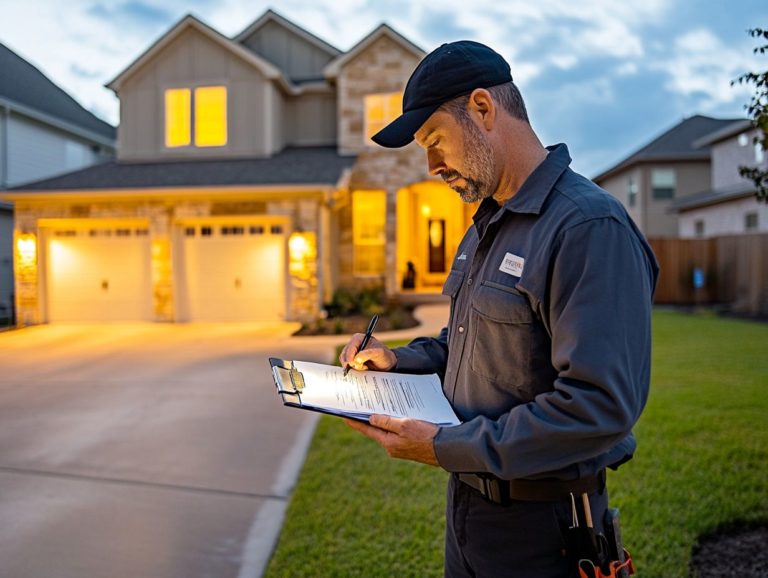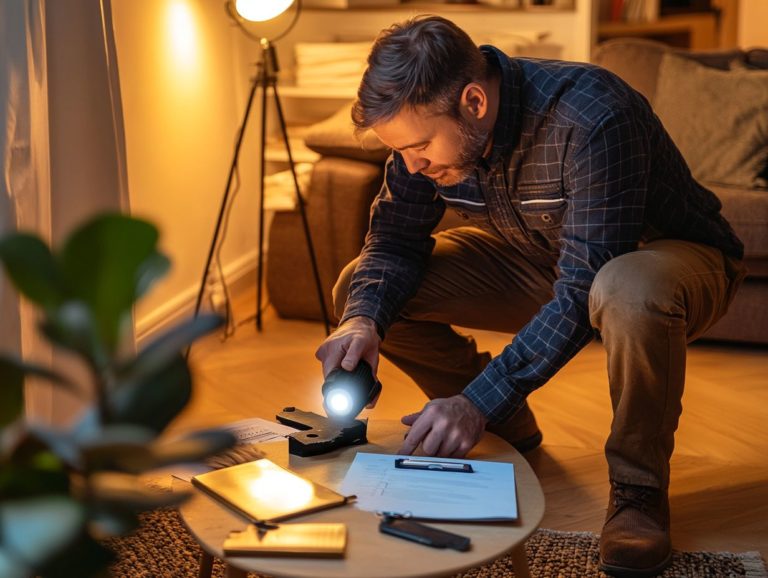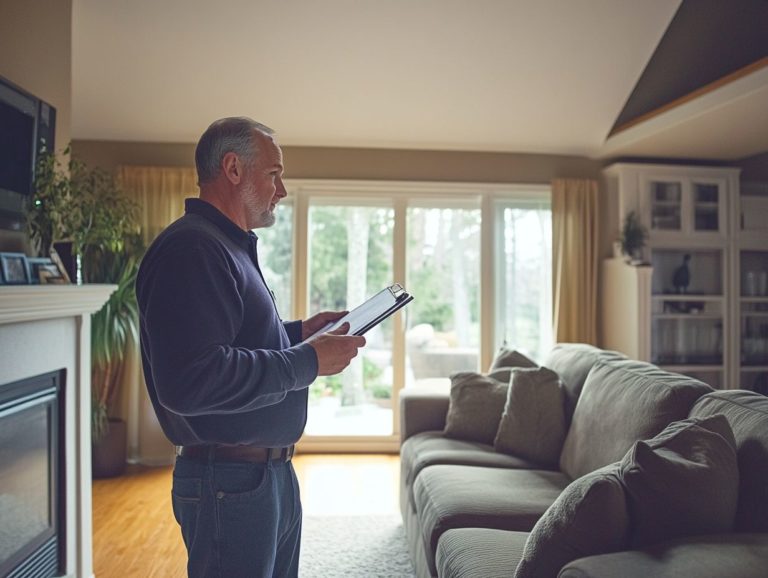Understanding the Importance of Home Inspections
Buying or selling a home is a significant milestone in your life, and a home inspection is a pivotal part of that journey.
By assessing the property’s condition, a home inspection ensures safety and quality while helping you identify potential issues that could arise down the line. Whether you’re navigating a real estate transaction or focusing on maintaining your current home, it’s essential to understand the home inspection process, its benefits, and how to select the right inspector.
This article will guide you through everything you need to know about home inspections, empowering you to make informed decisions every step of the way.
Contents
Key Takeaways:
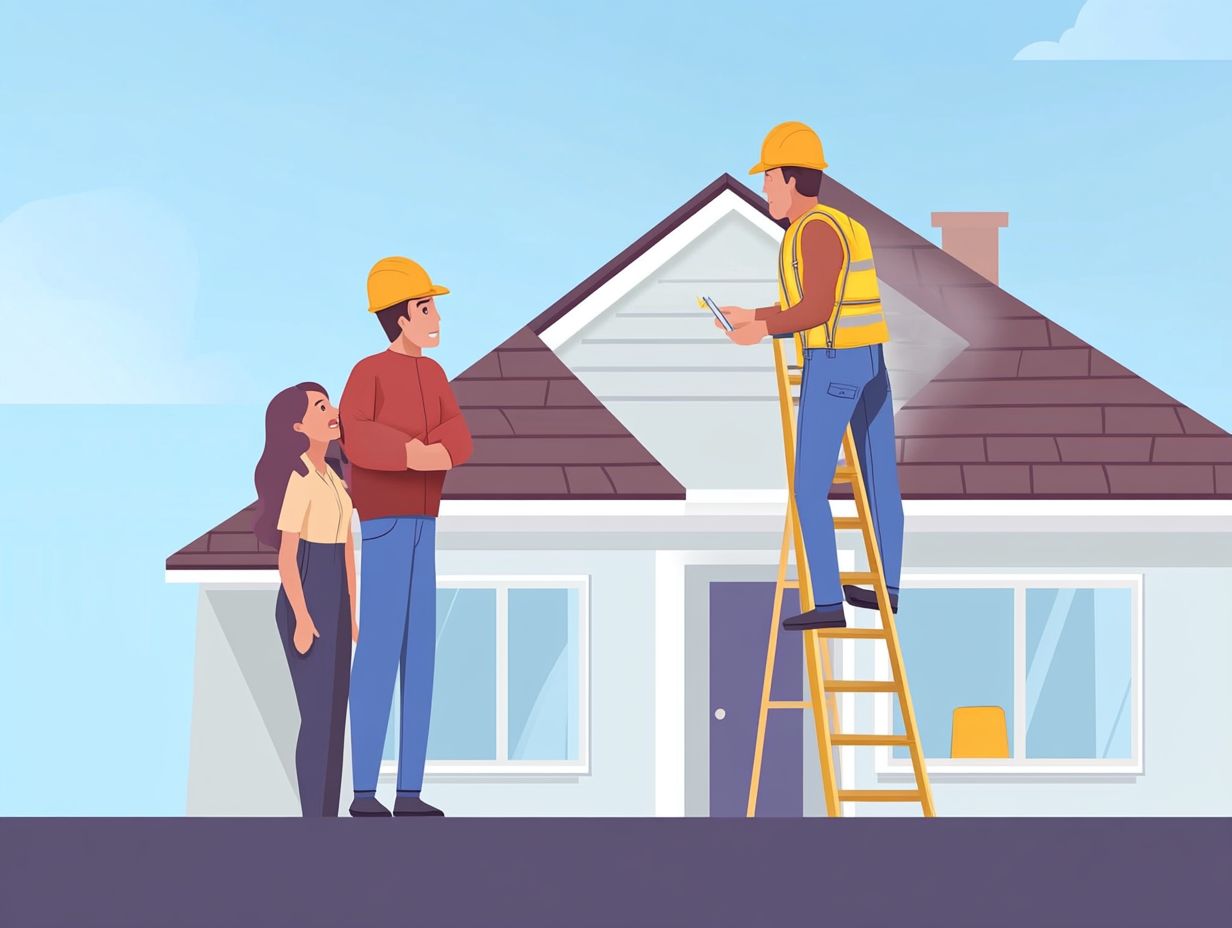
Home inspections are crucial in ensuring the safety and quality of a home. They help identify potential issues that may arise. It’s important to get a home inspection when buying or selling a home for regular maintenance to prevent future problems. Consider factors such as qualifications, experience, and cost when choosing a home inspector. Understanding the process of home inspections can help you appreciate the benefits of a thorough inspection, which can greatly outweigh the initial cost.
What is a Home Inspection?
A home inspection is an essential milestone in the real estate transaction process, offering a detailed assessment of a property’s condition. Carried out by a qualified home inspector, this thorough examination covers various systems, including electrical, plumbing, and the heating and cooling system, along with critical structural elements like the foundation.
The primary aim is to uncover any safety issues, structural concerns, or significant defects within the home. This provides invaluable insights for both buyers and sellers as they navigate their negotiations.
The Importance of Home Inspections
Home inspections are essential for safeguarding the safety and quality of a property. They offer both buyers and sellers a comprehensive understanding of the home’s condition, pinpointing major and minor defects that could impact the property’s value. For more insights, check out understanding the necessity of home inspections.
By illuminating potential safety concerns, home inspections provide valuable insights into what to expect during a home inspection, assisting in prioritizing crucial maintenance tasks.
Ensuring Safety and Quality
One of your primary objectives during a home inspection is to ensure safety and quality. You ll want to evaluate structural integrity and potential hazards, such as mold or electrical issues.
This process dives deep into the home s systems, guaranteeing compliance with local building codes. Inspectors methodically employ a detailed checklist to assess various elements, including roofs, plumbing, and electrical systems. This allows them to uncover issues that might otherwise slip under the radar.
By adhering to a structured approach, they can tackle both minor and major safety concerns, enabling you to make informed decisions as a homeowner. Ultimately, this thorough evaluation bolsters the structural integrity of the property and significantly enhances your peace of mind, assuring you of a safe living environment.
Identifying Potential Issues
Home inspections are crucial for pinpointing potential issues within various home systems, such as plumbing problems, drainage concerns, and the overall performance of the heating and cooling system.
Inspections can also uncover electrical system irregularities, including outdated wiring or inadequate grounding, posing significant safety risks. Minor issues can quickly escalate into costly repairs if not addressed in a timely manner.
During an inspection, you might discover problems like roof leaks, insulation deficiencies, or pest infestations.
With this knowledge, you can confidently negotiate repairs and understand the costs of maintaining your new home. This ensures you are well-informed about the vital updates and potential expenses tied to your future investment.
When to Get a Home Inspection
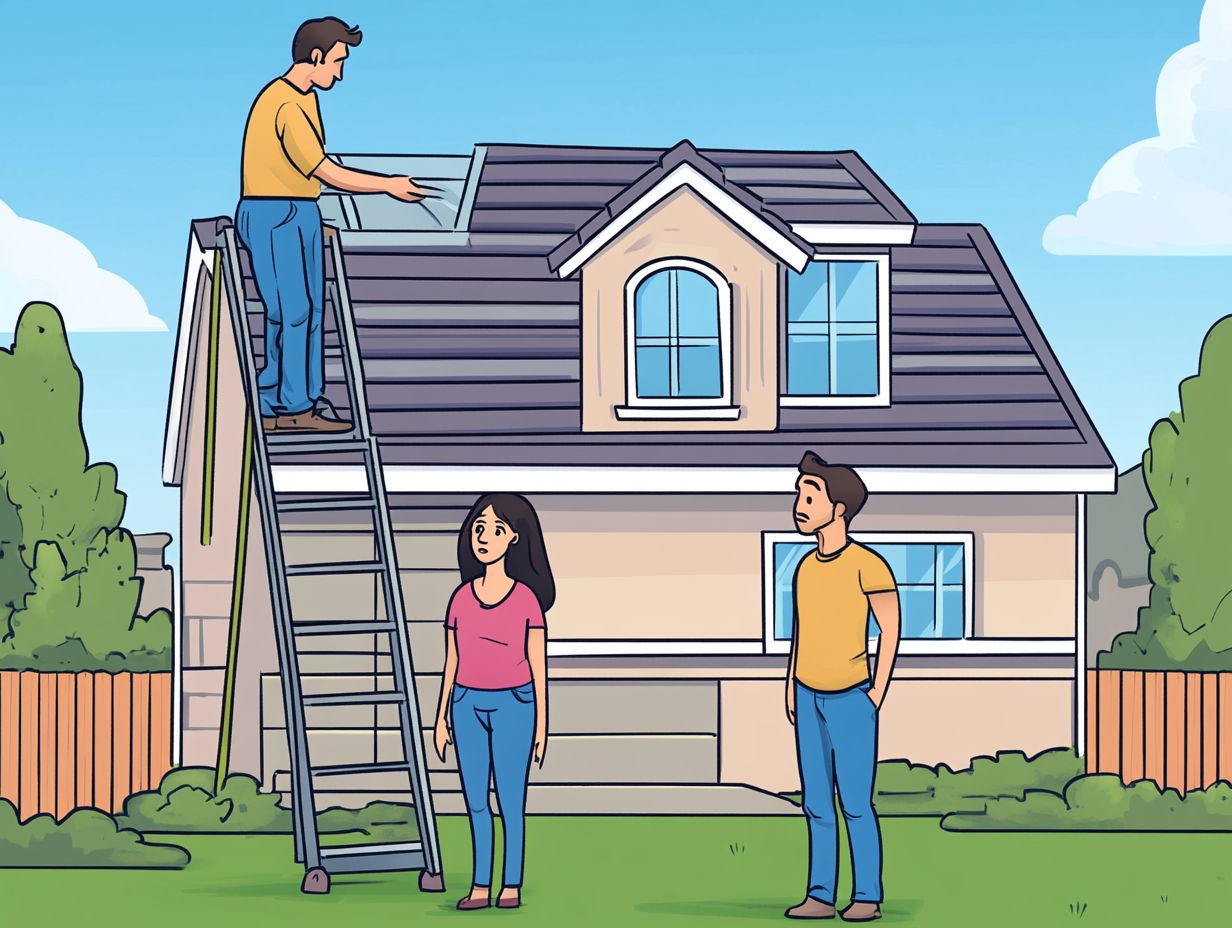
Understanding when to schedule a home inspection is crucial for both buyers and sellers. This step becomes particularly vital during the buying or selling process, especially when dealing with foreclosed properties. To learn more about this process, check out what to expect with a home inspection.
For first-time homebuyers, arranging an inspection acts as an essential contingency that safeguards their investment. To understand the benefits of a home inspection, don’t wait until it’s too late; schedule your home inspection as soon as possible to ensure you make informed decisions every step of the way.
Buying or Selling a Home
Whether you re buying or selling, the home inspection process is crucial. It can heavily influence the outcome of your negotiations.
This important step typically happens after you’ve accepted an offer but before the sale is finalized. A licensed professional usually carries out the inspection, providing both parties with a clear understanding of the property’s condition.
If serious issues are found, you can use these findings to negotiate a lower sale price or request necessary repairs. This can impact the seller’s willingness to cooperate.
If you’re the seller, a clean inspection report can be a powerful tool to support your asking price. It may position you stronger in negotiations.
Ultimately, the inspection results can significantly affect your entire buying or selling experience. They shape repair discussions and the emotional dynamics between everyone involved.
Regular Maintenance
Regular maintenance, guided by a thorough inspection checklist, is vital for homeowners. It prevents safety issues and keeps your property in great condition.
This proactive approach protects your home and boosts its market value. By routinely checking structural elements, plumbing systems, and electrical wiring, you can spot vulnerabilities early, reducing risks.
Don t wait! Schedule regular inspections think seasonal check-ups for your roof, gutters, and HVAC (heating, ventilation, and air conditioning) systems. Catch minor issues before they turn into costly repairs.
Maintaining a well-kept property not only enhances safety for you and your guests, but also creates a welcoming atmosphere. It preserves your long-term investment value.
The Home Inspection Process
The home inspection process involves a careful visual examination of the property, usually lasting two to four hours.
This assessment results in a detailed inspection report, outlining all findings. This ensures you thoroughly understand the property’s condition.
What to Expect and Prepare For
Prepare for your home inspection by knowing what to expect. Learn about the inspector s method, the checklist they ll use, and possible repair costs.
Taking proactive steps can improve the process, ensuring a smoother experience for you and the inspector. Clear access to areas like the attic, basement, and crawl spaces for a thorough examination. This makes the inspector s job easier and more efficient.
Gather relevant property documentation, such as warranties and reports on past repairs. This information can provide valuable insights into your home s condition and history.
Costs can vary dramatically based on the inspector’s findings ranging from minor fixes to major renovations. Being prepared for potential negotiations after the inspection can save you time and reduce stress.
Choosing a Home Inspector
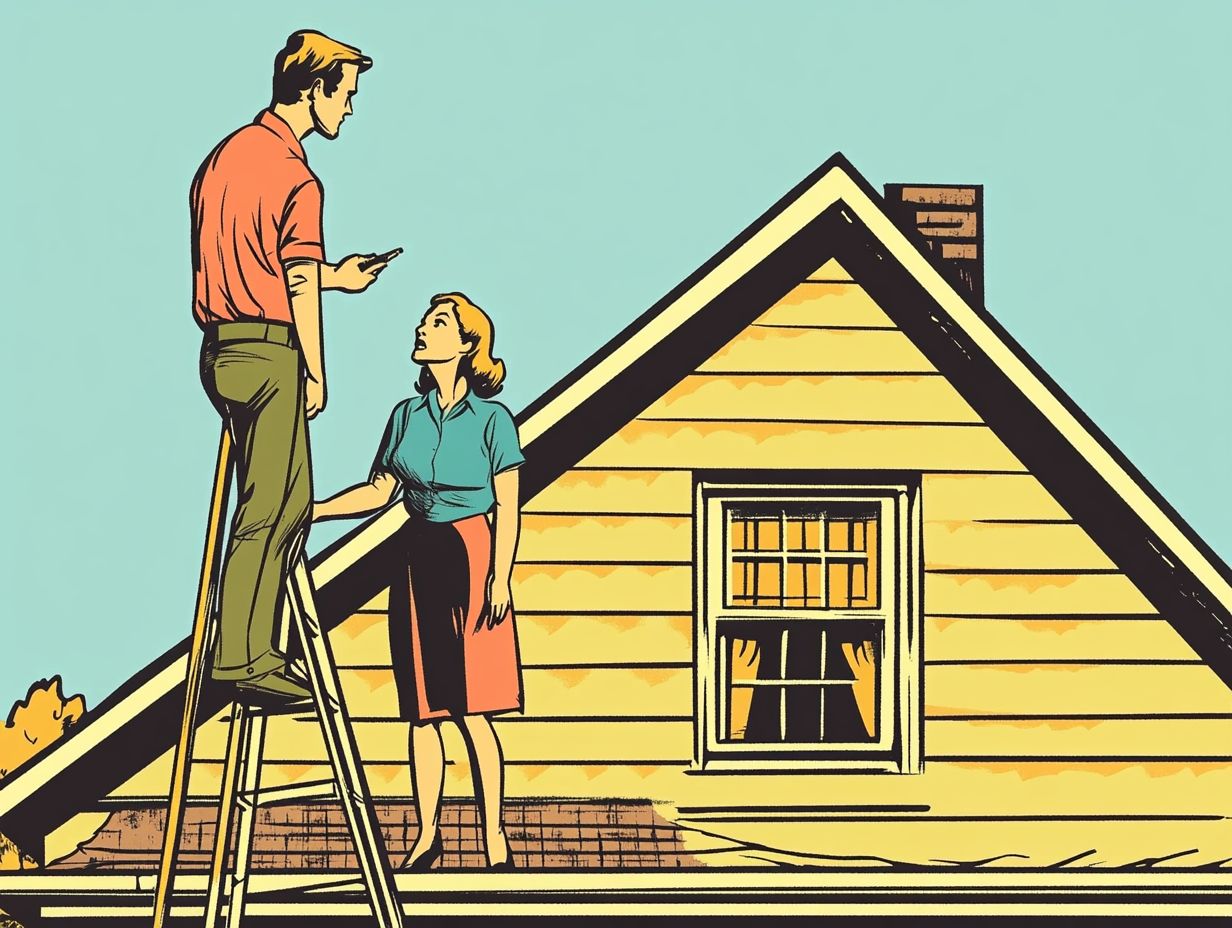
Selecting a qualified home inspector is essential for accurate results. Consider key factors like the inspector’s credentials, their experience, and recommendations from your buyer’s agent.
Evaluating these aspects will help ensure that you make a well-informed choice.
Factors to Consider
When choosing a home inspector, consider their experience, certifications, and client feedback. This ensures you receive a trustworthy evaluation.
A seasoned inspector, especially one with diverse expertise in pest and mold assessments, can provide insights into issues not visible during a standard examination.
This specialized knowledge is crucial; hidden threats like termite infestations or mold growth can significantly affect your property’s value and the health of its occupants.
Previous client reviews can offer invaluable insights into an inspector’s reliability and thoroughness. Positive testimonials often highlight the inspector’s technical skills and professionalism, giving you peace of mind in your decision.
Costs and Benefits of Home Inspections
Understanding the costs and benefits of home inspections is crucial for homeowners and buyers.
These evaluations can lead to significant financial implications and long-term advantages regarding property value.
Financial Considerations
Financial considerations are key in the home inspection process. The cost of the inspection can directly influence your negotiation power and repair estimates.
When you consider the cost of an inspection, you’re likely weighing it against the potential benefits. A thorough inspection can uncover hidden issues that may lead to costly repairs if ignored.
The findings from the inspection can significantly affect the property’s value. They can either boost your confidence in what you re willing to pay or prompt you to reconsider the price.
If the inspection reveals necessary repairs, you gain leverage during negotiations, allowing you to request concessions or negotiate repairs before finalizing the purchase.
By addressing issues promptly, you can uncover cost-effective solutions, ensuring your new home doesn t come with unexpected financial burdens down the line.
Long-Term Benefits
The long-term advantages of home inspections go beyond immediate repairs. They can improve your home maintenance, enhance your property value, and effectively tackle safety concerns. For more insights, check out what to know about home inspection policies.
By routinely assessing the condition of key systems and structures, you can identify minor issues before they escalate into costly problems.
This proactive approach minimizes the risk of unexpected expenses and cultivates confidence in your home’s overall safety and reliability.
Regular inspections highlight your property s well-maintained condition, making it more appealing to prospective buyers and contributing to sustained property value retention.
Ensuring everything is in order creates a safer living environment, reducing potential hazards that could impact both the occupants and the structure.
Frequently Asked Questions
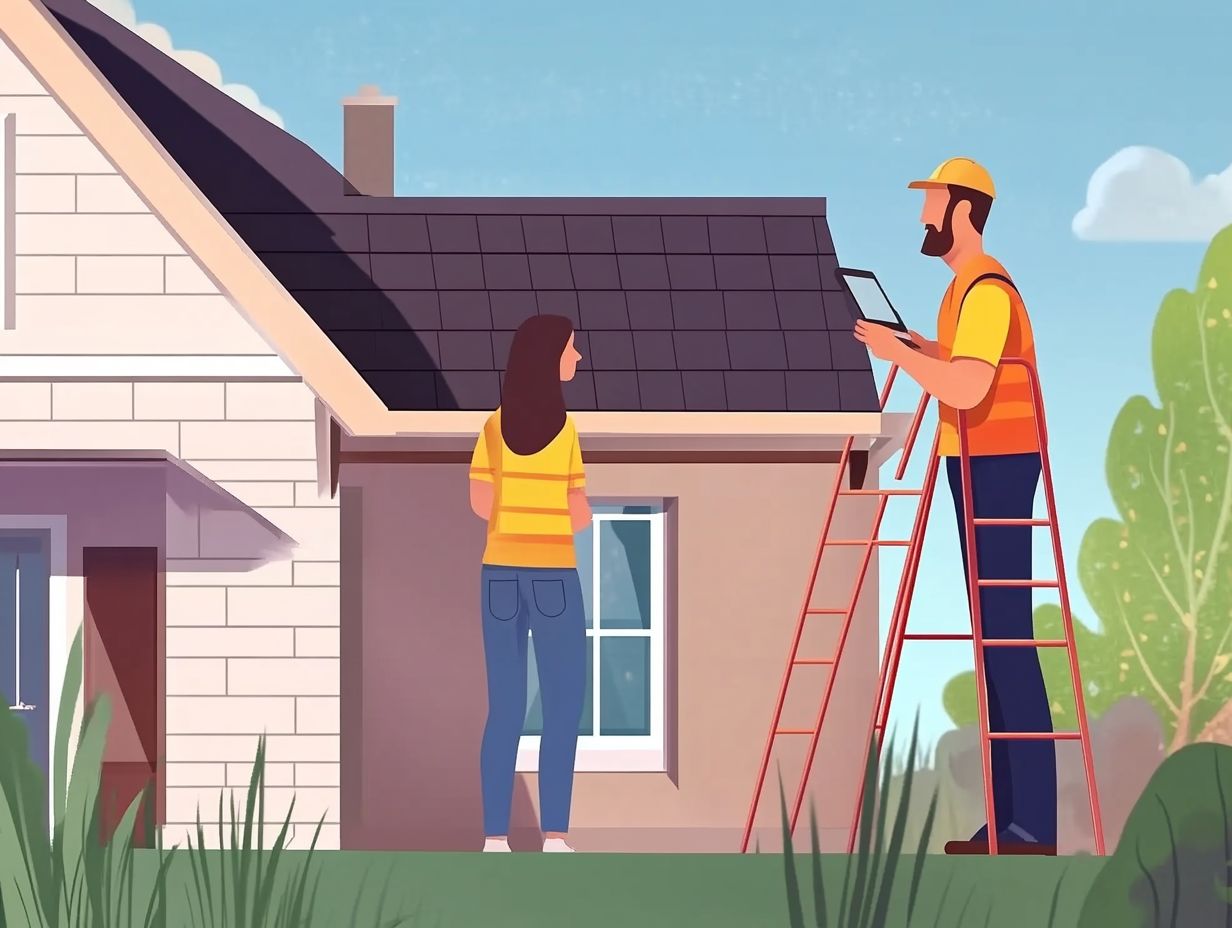
-
What is the purpose of a home inspection?
A home inspection is a visual examination of a property, conducted by a trained and certified professional, to assess the overall condition of a home. The purpose is to identify potential issues or safety hazards affecting the value, safety, and livability of the property.
-
Why is it important to understand the importance of home inspections?
Understanding the importance of home inspections is crucial for both home buyers and sellers. For buyers, it helps them make informed decisions about their potential investment. For sellers, it allows them to address any issues before putting their home on the market.
-
Who should get a home inspection?
Anyone looking to purchase or sell a home should consider getting a home inspection. It benefits buyers, sellers, and current homeowners who want to ensure their home is in good condition.
-
What does a home inspection cover?
A home inspection typically covers the condition of the structure, foundation, roof, plumbing, electrical systems, heating and cooling systems, and other major components. Additional services, such as termite inspections or mold testing, may also be included based on the inspector and property location.
-
When is the best time to schedule a home inspection?
The best time to schedule a home inspection is after an offer has been made and accepted, but before closing the sale. This allows the buyer to negotiate necessary repairs or back out if major issues are found during the inspection.
-
What happens if issues are found during a home inspection?
If issues arise during a home inspection, the buyer and seller can negotiate responsibility for addressing them. This may involve requesting repairs or a credit towards the purchase price. If an agreement can’t be reached, the buyer can walk away without penalty, depending on contract terms.
Don’t miss out on the critical benefits of home inspections! Schedule yours today to ensure your investment is secure!

